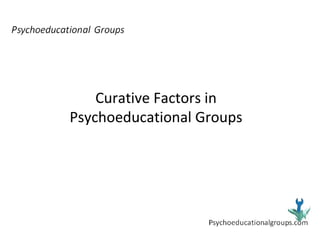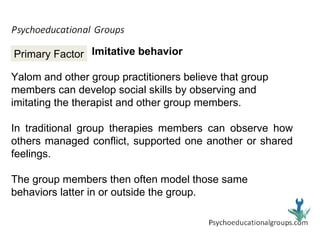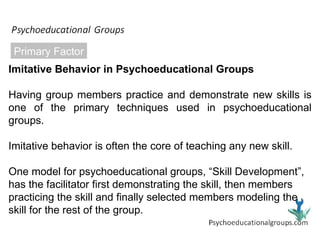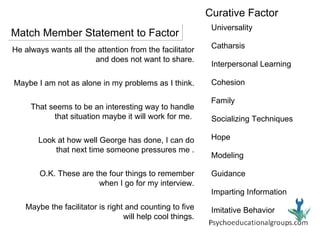The document discusses curative factors in psychoeducational groups. It outlines 11 curative factors identified by Irving Yalom and rates their applicability to psychoeducational groups as primary, secondary or tertiary. The primary factors for psychoeducational groups are imparting information, universality, imitative behavior, instillation of hope and development of socializing techniques. Secondary factors include interpersonal learning, existential factors and guidance. Tertiary factors include cohesiveness, catharsis and corrective recapitulation of the primary family experience.
































